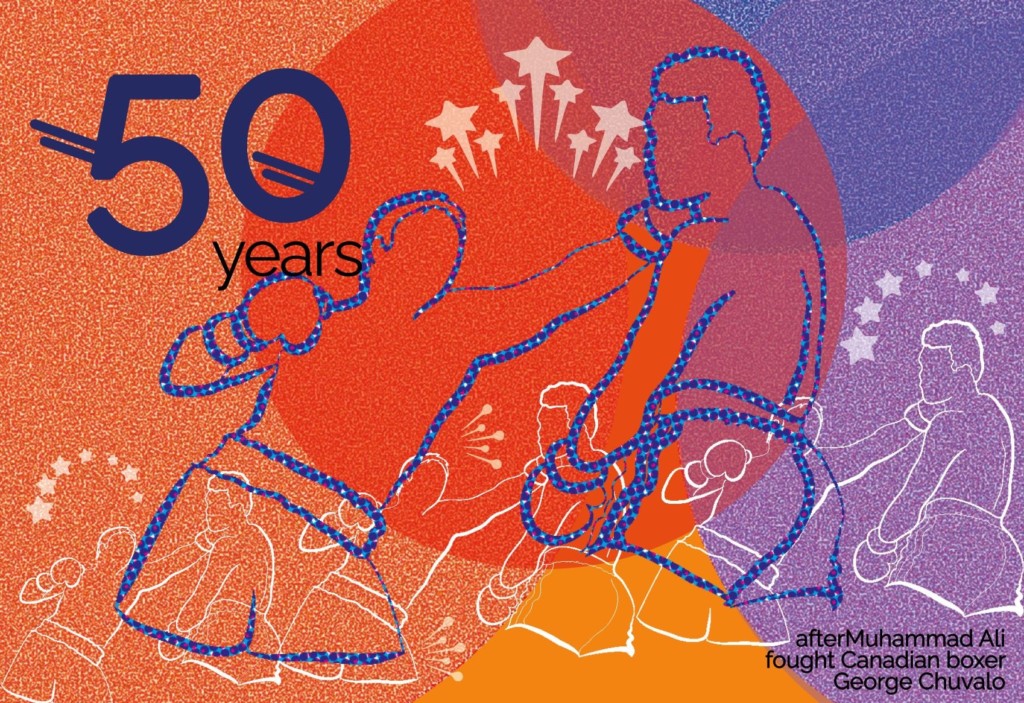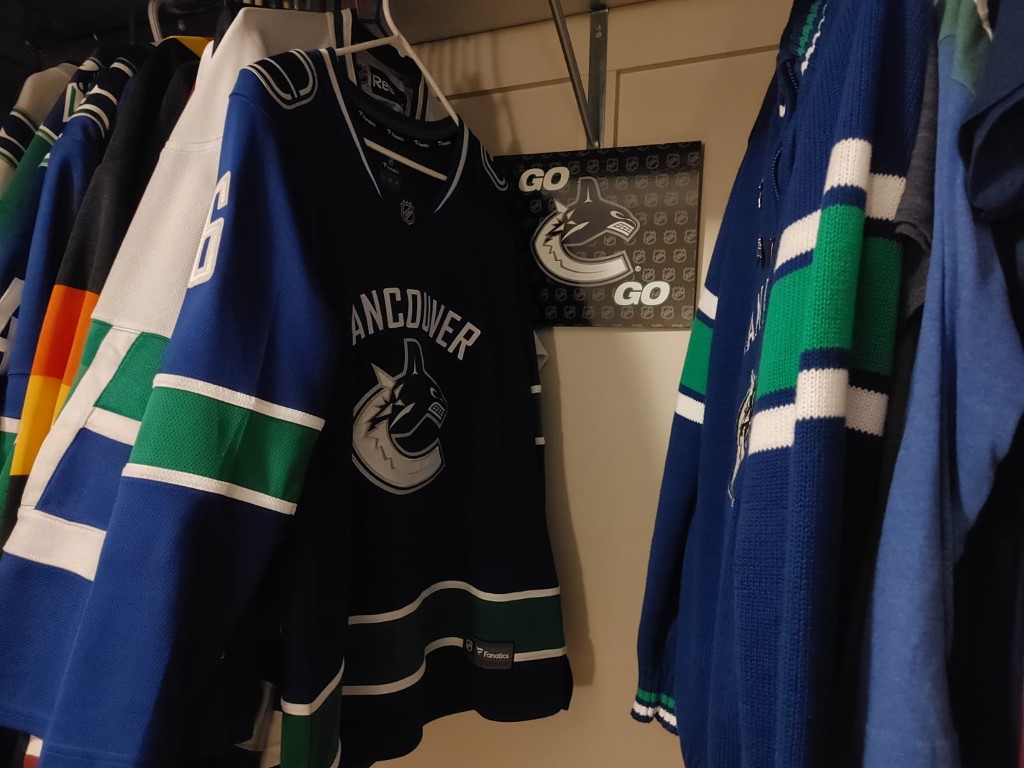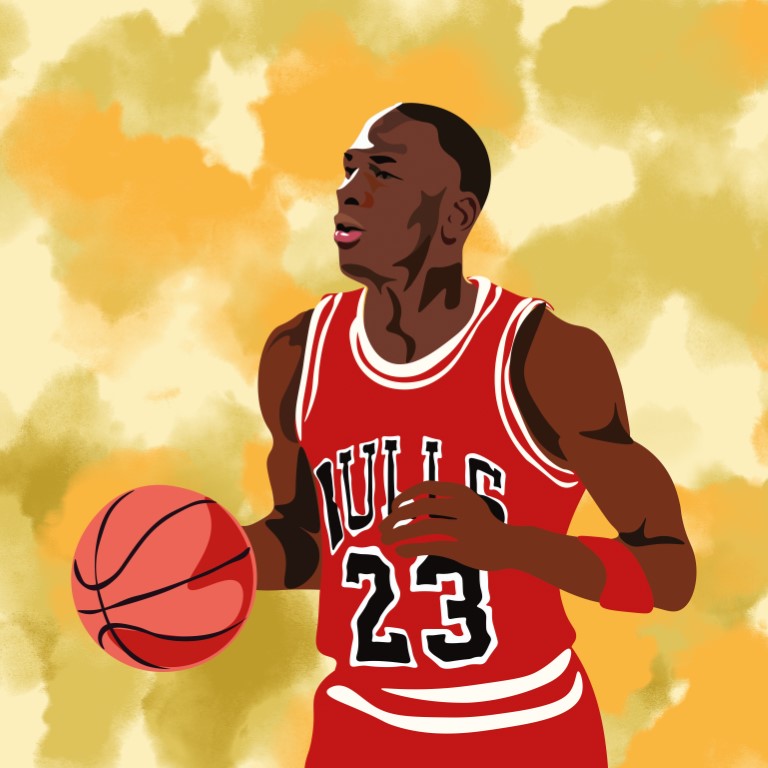
Ali generated headlines in the ring with his mixture of charisma, cockiness and supreme boxing ability.
Fifty years ago, Muhammad Ali fought Canadian boxer George Chuvalo that went all 12 rounds
By Brandon Yip, Senior Columnist
Muhammad Ali, in his prime, loved to talk. That was likely the reason he was given the nickname “The Louisville Lip.” If there was one thing Ali loved was to tell everyone how pretty he was. Well, he was pretty. He was also “pretty” fast with his movements inside the ring, graceful like a ballet dancer and fierce as a raging bull. Ali was also one of the greatest heavyweight boxers of all time and the first boxer to win the world heavyweight title three times.
This year marks 50 years since Ali’s appearance in Vancouver to fight Canadian boxer, George Chuvalo. The fight occurred at the Pacific Coliseum on May 1, 1972, and went the entire 12 rounds with Ali winning by unanimous decision. Ali later told retired Vancouver Sun photographer, Ralph Bower, that Chuvalo was the toughest opponent that he had ever fought. The two men had fought previously at Maple Leaf Gardens in Toronto on March 29, 1966; that fight also went the distance (15 rounds), with Ali again winning by a unanimous decision. Chuvalo would be the first fighter to go the distance with Ali as heavyweight champion.
Ali generated headlines in the ring with his mixture of charisma, cockiness and supreme boxing ability. Ali was an entertainer and he knew how to sell himself and his sport. In a 1969 interview with the Associated Press as reported by CBS Sports, Ali admitted that watching professional wrestler, Gorgeous George (real name George Wagner), influenced his persona and behaviour in press conferences when he promoted his future fights (Ali also met Gorgeous George in Las Vegas in June 1961). Ali was also a significant and influential figure for African Americans during the civil rights movement in the US in the 1960s. Other notable figures in the civil rights movement included Martin Luther King Jr. and Malcolm X.
Ali was also a very polarizing figure in the US. He caused controversy for refusing to be drafted to fight in the Vietnam War. His decision was based on his religious beliefs as a Muslim (after joining the Nation of Islam). According to britannica.com, in March 1964, Ali, born Cassius Clay on January 17, 1942, in Louisville, Kentucky, changed his name to Muhammad Ali (given to him by his spiritual mentor, Elijah Muhammad). Ali was stripped of his heavyweight title in 1967. According to a biography on history.com, on June 20, 1967, he was convicted of draft evasion and issued a five-year prison sentence. Ali was also fined $10,000 and given a three-year boxing ban. He served no jail time while his case was appealed. Ali returned to the ring in 1970. In June 1971, his conviction for evading the draft was overturned by the US Supreme Court.
According to Global News, the Vancouver fight in May 1972 was backed by Vancouver stock promoter, Murray Pezim and organized by Mario Caravetta—manager for the Pacific Coliseum. Caravetta was also good friends with Ali’s legendary trainer, Angelo Dundee. Greg Douglas, a veteran sports journalist, helped promote the Ali and Chuvalo fight in Vancouver. Douglas told Global News in June 2016 that the fight was “a great night in the history of Vancouver sports.” Douglas also remembered the anticipation of the fight was well-received in Vancouver. “It was electric,” he said. “It stole the local sports limelight. The pre-fight was an event. Chuvalo was the sentimental favourite. There was no way he was going to beat Ali. It just wasn’t going to happen.”
During his stay in Vancouver, Ali had a brief tour of Stanley Park. Ralph Bower recalled Ali loved it: “He said how lovely Stanley Park was, and that it would be a great place to train.” According to Len Corben, a North Shore sports historian, Ali would also get acquainted with North Vancouver. Corben wrote about Ali’s visit to the North Shore in a column for the North Shore Outlook, stating the legendary fighter trained at Northwest Eagles gym in North Vancouver. Afterwards, he went across the street to the old city hall located on West Fourth Street to do a radio interview. Ali later met and had a playful interaction with Ron Gibbs, who was city clerk for North Vancouver for 30 years (a photo was taken of two men in fighting stances facing each other). Gibbs’ office was used for the interview Ali had conducted.
Notably, Ali also made an impact on a young boxing prodigy named Dale Walters (his father Len was a championship boxer in the 1950s). He later represented Canada at the 1984 Olympics in Los Angeles, winning a bronze medal in the bantamweight category. Walters was inducted into the BC Sports Hall of Fame in 2006. He was at the Pacific Coliseum as a 10-year-old, fighting on the undercard that night and met Ali inside his dressing room. “It was something that I’ll never, ever forget,” Walters said to CBC News in June 2016. “The dressing room was just packed with people, Angelo Dundee had just finished wrapping Ali’s hands.”
Walters shared a memorable story about his interaction with the legendary boxer. Walters told an audience at the College of New Caledonia gym as reported by the Prince George Citizen in June 2016: “He said, ‘What’s your name boy?’ and I said ‘It’s Dale.’ Then he says, ‘Are you going to be the next champion of the world?’ I was [scared] and said, ‘Yeah, I’m going to try.’ And then he says to me, ‘Well you might be the next champion of the world but you’ll never be as pretty as me.’ And everybody laughed.”
Ali retired from boxing in 1981 with a record of 56 wins and 5 losses with 37 knockouts. Sadly, years of absorbing punches from opponents took their toll on Ali’s health in retirement as he had a well-documented battle with Parkinson’s disease. Ali died in June 2016 at age 74. He will be remembered as one of the most charismatic, influential and entertaining boxers of all time. Ali was a pioneer with his antics during pre-match press conferences where he was brash and ostentatious. He laid the foundation for how a media briefing should be conducted in publicizing a fight. He, himself, was his best marketing instrument. Like the Pied Piper, Ali’s words attracted many followers.
But 50 years ago, Ali showed why he was the “greatest” during his appearance in Vancouver. In Ali’s view, it was important to put on a show outside of the ring as it was to put on a show inside of it. Before his fight against George Chuvalo, Ali was asked by a CBC reporter, “Where do you go if you don’t win this fight?” Ali was astonished by the question and responded in his typical and unique fashion: “If I don’t win! Listen, if George Chuvalo dreamed he’d beat me, he better wake up and apologize!”



